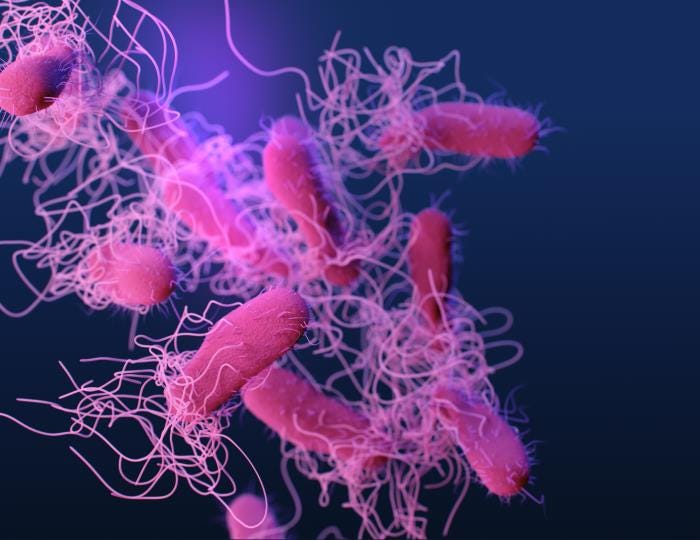The Epidemiology Department of the Autonomous City of Buenos Aires (CABA) reported an outbreak of invasive febrile and gastrointestinal symptoms in a cluster of patients treated at different hospitals in the Autonomous City of Buenos Aires (CABA), residing in the same area in two neighboring buildings, in the town of Ciudadela, Tres de Febrero district, Buenos Aires province.
In two cases, the National Reference Laboratory confirmed the isolation of Salmonella enterica enterica serovar Typhi, and in three new cases, the isolates studied were phenogenotypically confirmed as Salmonella Typhi.
To date, 10 people treated between March 9 and April 22 have been identified at two facilities in the Autonomous City of Buenos Aires (CABA), all of them residents of the province of Buenos Aires. The clinical presentation has varied widely among cases, with some patients requiring hospitalization due to systemic involvement and others requiring outpatient care. In addition, a case treated at a private facility in the province who died on April 17 is being investigated. The relative of two affected cases was a relative of two affected cases. The age range is between 6 and 53 years; the median age is 22 years, with seven cases being male.
The investigation is ongoing, and interviews are being conducted with cohabitants and relatives of the cases. Active searches are also planned to identify possible cases among residents of the affected area and to take steps to identify the source of infection and control the outbreak.
The first case presented with the following symptoms on March 9: fever, abdominal pain, persistent diarrhea, and dehydration, necessitating hospitalization. Dengue fever was ruled out (NS1 antigen negative), and Salmonella Typhi sensitive to ceftriaxone was isolated in two blood cultures.
The last reported case began symptoms on April 20 and presented with a consultation 48 hours later at a public facility in the City of Buenos Aires. The patient presented with fever, hepatosplenomegaly, abdominal pain, diarrhea, nausea, and vomiting.
To date, four of the affected patients remain hospitalized, although their clinical progress is favorable. Those who did not require hospitalization were prescribed antibiotic treatment with ciprofloxacin.
On April 22, the Tres de Febrero Epidemiology Department conducted a home visit to the cases to conduct the corresponding epidemiological investigation. Based on the information gathered, it was determined that the building's water supply was cut off for approximately two weeks between late January and early February.
Therefore, the drinking water in the buildings is suspected as a possible source of contamination, as both are supplied from the same tank, which is supplied with well water.
To further investigate possible sources of exposure, technicians from the municipality's Food Science and Epidemiology Department, in conjunction with the Dr. Tomás Liberato Perón Hughes Hospital in La Plata and Sanitary Region VII to collect samples of suspected water and food on the morning of April 24. Active searches for suspected cases were also conducted, and alert guidelines and recommendations for food handling and the use of safe water were provided to residents of the buildings.





